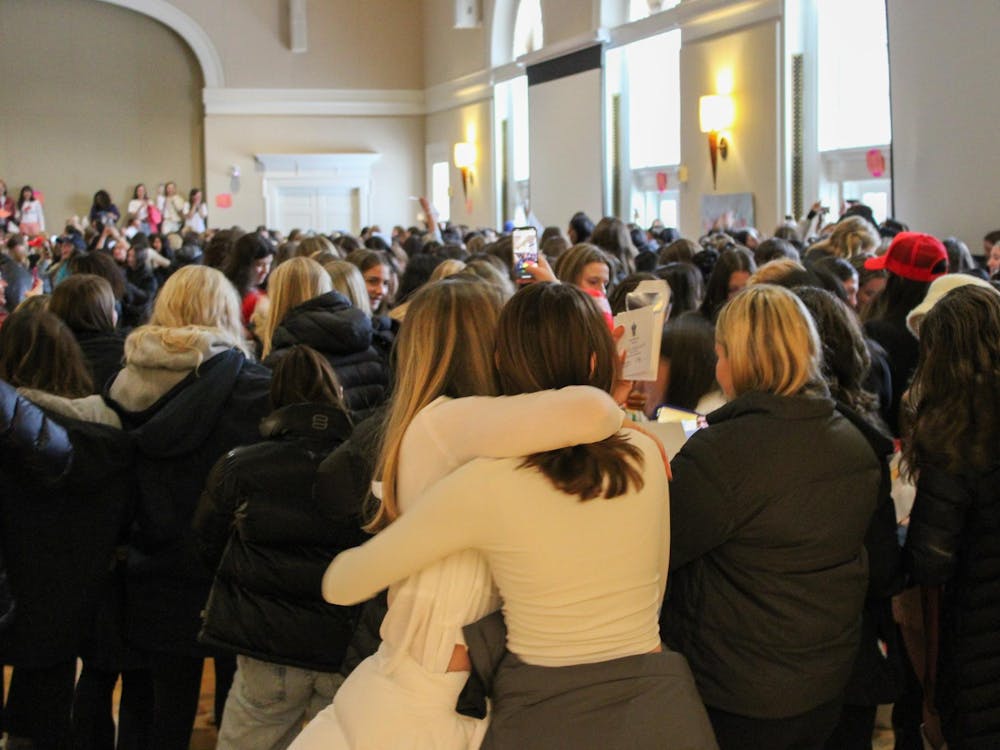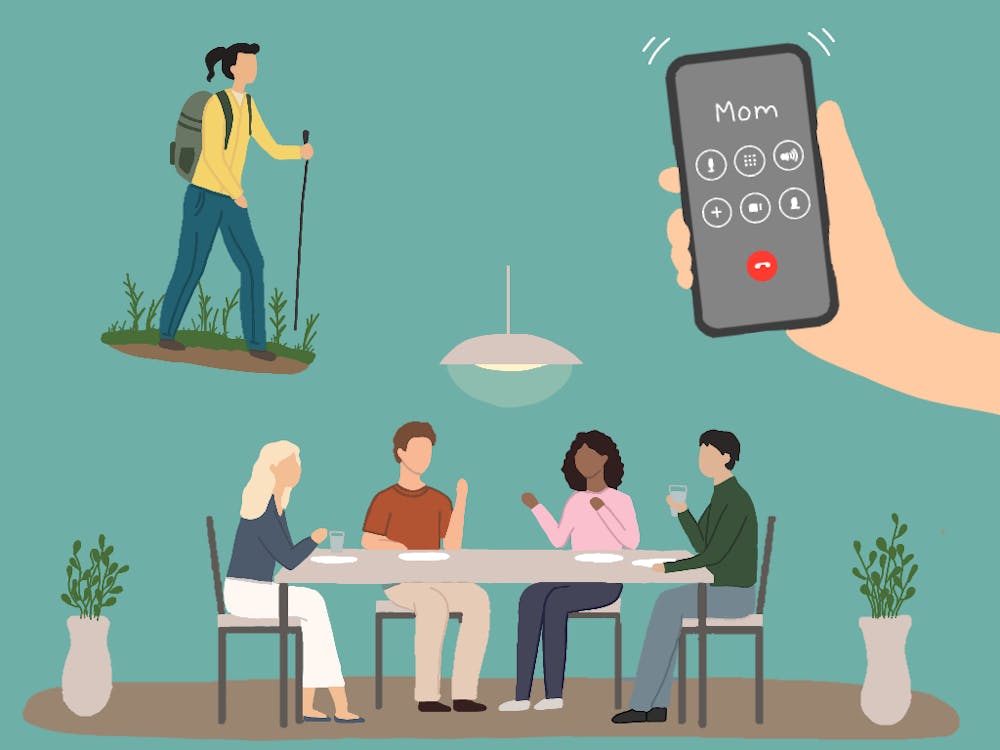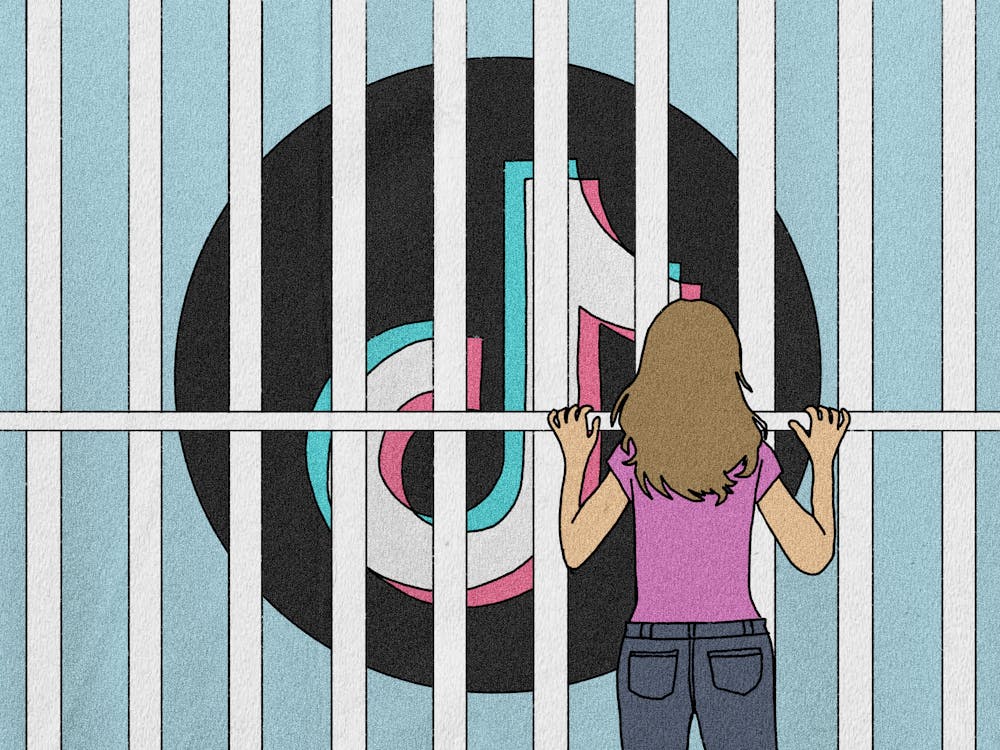Young girls associate the word "diary" with emotional outpourings, and most of all, secrets.
But in this age of the digital revolution, not even this time-honored tradition has been left untouched.
The new, digital form of diaries, called blogs, or Web Logs, enable the user to post his or her innermost thoughts on the Internet for the whole world to read.
Bloggers link to their friends' blogs, creating a chain of links in which people closely follow the lives of others they do not even know.
And starting your own blog is just as easy -- and cheaper -- than buying a diary.
Blogger.com boasts that you need only three minutes to set up a blog using their templates.
According to fourth-year College student Amy Hawkins, there's also no need for prior computer knowledge.
Hawkins started her own blog with no Web programming experience whatsoever.
Third-year College student James Layman, who has held jobs involving Web technology similar to that used in blogs, said he finds the templates provided to be adequate for his blogging needs.
"All I added was a comments section," Layman said.
Hawkins said she finds maintaining an Internet journal much easier than a written diary.
"I never wrote in a private journal on a regular basis," she said.
First-year College graduate student Katie Bowers has been updating her blog almost daily for the past two years.
"It gets addicting, like caffeine," Bowers said. "It gets to the point where you have to update."
Bowers fills her blog with anything that she finds interesting, from stories about her day to newspaper articles to her classes.
She uses her blog as a creative outlet and a way to organize her thoughts.
"I had someone write me and say, 'I really enjoyed your high school angst poetry, I'd love to see more,'" Bowers said. "I was like, 'Hello, high school angst poetry. There's no more coming from where that came from.'"
Due to the nature of the Internet, however, she tries to keep her friends' names out of her blog.
"It's not everything that happens to me as a person," Bowers said. "I try to keep the people I'm talking about fairly anonymous, so I don't use last names."
Bowers further censors her content with her friends and family in mind.
"It's an issue of people I know reading it and overreacting when it's not what I mean at all," Bowers said.
Hawkins was prompted to take similar precautions after an incident involving an argument with her mother.
"She hadn't told me she was reading it, and I exaggerated about something she said to me," Hawkins said. "She took it very badly. And she was within her right to do so."
Hawkins finds that the easiest way to keep her blog on neutral ground is to keep it from being too personal.
"I don't put things up there about certain aspects of my relationship with my boyfriend," Hawkins said. "It's more as if I was writing the Amy Hawkins newspaper. If it's controversial I try to make it not about me."
Some bloggers even choose to keep the contents of a blog from offending others by restricting public access.
Some blog hosts offer privacy options, such as making a blog available only to the people on a buddy list or to the user themselves.
Layman, however, feels that bloggers should accept the open nature of their journals.
"Lack of privacy is implicit in posting on the Web," Layman said. "If you don't want that, you shouldn't have a blog."
Hawkins agrees those who want to write about private issues perhaps should choose a different medium.
"If you write about things that tend to be more personal maybe you shouldn't put it on the Internet," Hawkins said.
Hawkins has found that privacy is not a huge issue because her blog remains private to her circle of friends. She said she received more messages from strangers when she used to post blog-like content to her Instant Messenger profile.
Bowers, however, receives a marked amount of interest in her blog from strangers.
"It's very strange when you get e-mails from people who know a lot about you from your blog and you have no idea who they are," Bowers said. "They write you because they start getting into your blog and thinking that you're someone who they actually interact with."
Bowers said her readership extends from friends to friends of friends. In some cases, she said, reading each other's blogs takes the place of actual correspondence.
"One of my friends and I just read each other's blogs and occasionally send an e-mail," Bowers said. "And we do stay in very good touch, because we're reading all of this stuff about each other, but I haven't actually spoken to her in several months."
Hawkins even feels that blogs have made some of her friendships easier.
"You can get to deeper stuff immediately," Hawkins said. "Something that's impressed them enough that they wanted to write about it."
Hawkins plans to continue to update her blog after she graduates from the University. She hopes her blog will help her keep in touch with friends after they leave the University community.
"I think it'll help me keep in contact with people," Hawkins said. "It certainly has for the past year."
Circles of friends who all keep in touch through each other's blogs are forming a new type of community on the Web.
Hosts such as LiveJournal make maintaining such communities easier through use of a "friends" toolbar, which calls up the most recent entries from a list of buddies.
Blog communities also are becoming geographically centered, according to Bowers. Blogs of people who live in a certain city are linked so they can be read together.
"Sadly there isn't one for U.Va," Bowers said. "But there are only two or three bloggers at U.Va., I would say."
Bowers said she follows the blogs of around 16 others.
"You just read them every day like you read the newspaper," Bowers said. "Half the blogs I read are people I don't know."
In addition to keeping in touch with friends, Hawkins finds that her blog enables her to focus on the most important things in life.
"Having a public forum keeps me focused on things that I can share with other people," Hawkins said. "I generally find that there are better things to focus on than more negative aspects or parts of your life."
Bowers feels that blogs also have a positive effect on the Internet.
"It humanizes the Web," Bowers said. "I know after Sept. 11 there was a big movement to make a record of all of the New York LiveJournals and blogs. I think it's still online somewhere. A lot of times it's a lot more informative than the news as far as what people were feeling and what was going on."
For all of its technological advantages and global potential, though, a blog still has a lot in common with its humble predecessor.
"I enjoy reading back over my blogs because I can tell exactly what was going on in my life," Bowers said. "It's like reading back over a diary."





